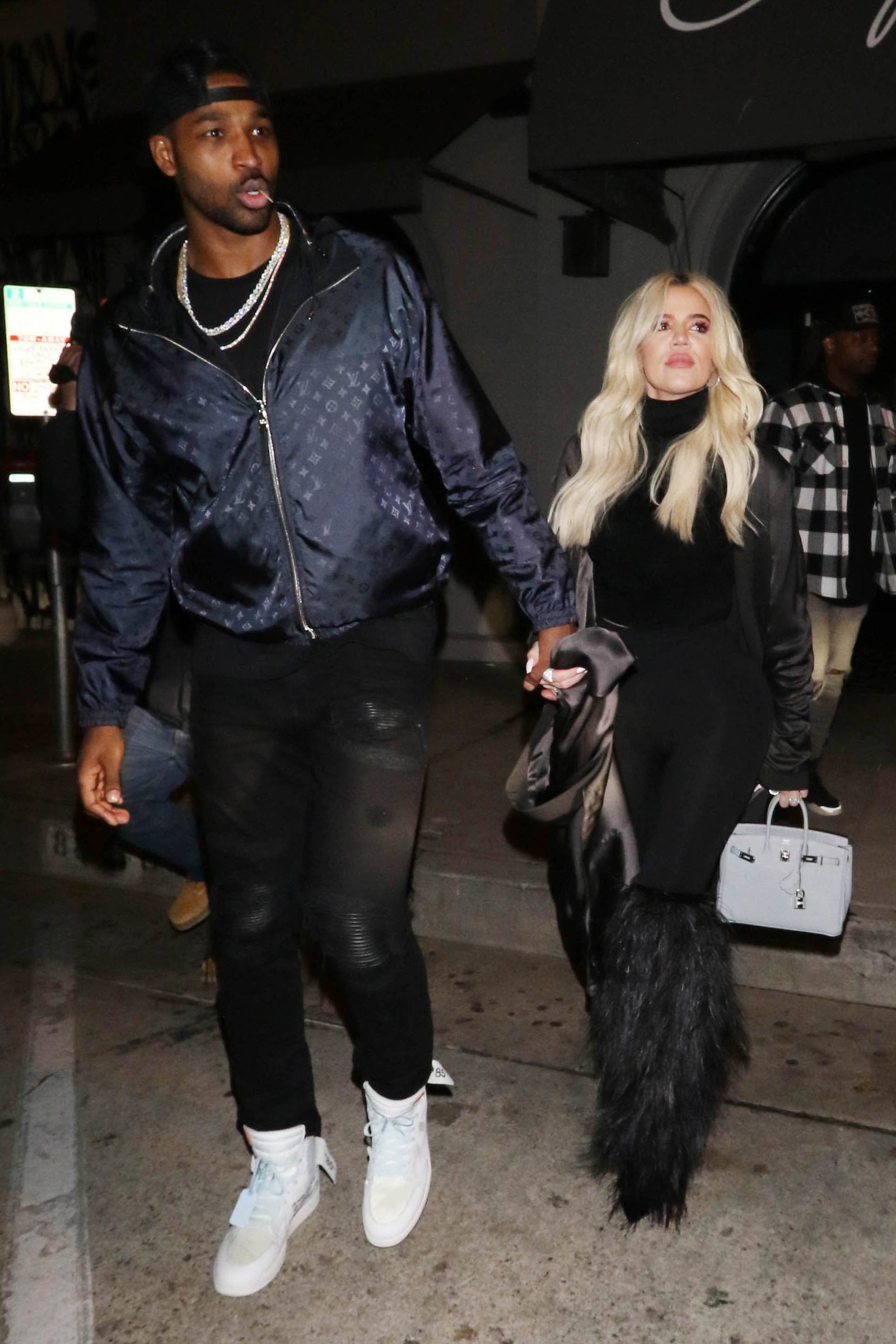Why Jordyn Woods Should Not Have to Take the Blame for Tristan Thompson's Actions

On Friday afternoon, March 1, Jordyn Woods’ Red Table Talk interview with host and longtime family friend Jada Pinkett-Smith finally went live. In the 30-minute segment, Woods shared her side of the salacious story that’s been consuming gossip media for nearly two weeks: the rumor that she hooked up with Tristan Thompson, the father of friend Khloé Kardahian’s child. Teary-eyed and somber, Woods’ account of what really happened that night seemed earnest and credible—but it also revealed that Woods has internalized the deeply held cultural belief that women are responsible for the misdeeds and bad behavior of grown men. “I don’t think he’s wrong,” she says of Thompson in the interview, “because I allowed myself in that position.”
In the time since the scandal first broke, it seems the Kardashian family has orchestrated a scorched earth campaign against Woods, exiling her from the family businesses and taking to social media to fan the flames. Family friends Malika Haqq and Larsa Pippen have also gotten in on the action, with Khloé Kardashian herself taking shots at the 21-year-old.
As young model and influencer who owes most of her fame to her association with the Kardashian family, Woods is an easy target; while she’s highly visible in the Kardashian ecosystem, she seemingly has little to no agency within it. It’s disappointing that the family would make Woods a scapegoat in their domestic foibles, but it isn’t surprising: Blaming another woman, especially a black woman, for the wandering eye of a partner is a tried and true tactic that somehow always works in society, regardless of the configuration of the relationships involved. Historically, black women are both Mammies and Jezebels; too frigid and asexual to keep a man once she has him, too lascivious and promiscuous for anyone else’s man to resist. The script had already been written.
What’s most troublesome about the entire scandal is Jordyn’s apparent conflict between accepting her prescribed position in the narrative, while simultaneously pushing back against the fury coming her way from the family and society at large. Her willingness to accept the blame comes through loud and clear as she mentions several times that doesn’t fault Thompson for what happened. “I feel like I can’t point fingers and I can’t say, ‘You did this’ because I allowed myself to be in that position,” she says at one point. “I allowed myself to be there.”
Multiple times, she says she was at fault for what she describes as a non-consensual kiss. Despite denying the most serious allegations outright—that she and Thompson hooked up beyond a kiss—Woods accepted culpability for the incident, essentially punishing herself for ever being anywhere near Thompson in the first place. And while she admits she was not immediately forthright about what did happen, she skips over the fact that she should be able to spend time with someone who is, for all intents and purposes, a family member without worrying he’ll try to initiate an intimate encounter. It’s probably safe to assume that Thompson’s version of events heavily contradicts Woods’, but when it comes down to it: Why should anyone believe his version of events over hers? When he’s the proven cheater and she’s a longtime family friend?
Thompson and Kardashian
Hollywood To You/Star Max
Given the way the story has been framed, it’s little wonder that Woods felt compelled to seek out a friendly and, yes, very public platform to state her case. After all, it didn’t take long for the usual trope-laden narrative to take hold in the press and on social media: that Woods was a malicious harpy who seduced Thompson away from his familial obligations, betraying her white friends (and benefactors) along the way. Most of the coverage of the story has centered on Woods: what she did, what she lost, and how the family is choosing to punish her. The memes following the scandal were all a variation of the same warning: Don’t bite the hand that feeds.
Regardless of which version of the story you believe, Tristan Thompson has somehow managed to become a footnote in the story of his own infidelity. It’s a colossal feat that doesn’t happen without the larger context that automatically frames black women as perpetrators of harms they haven’t committed.
